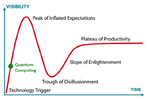Garpal Gumnut
Ross Island Hotel
- Joined
- 2 January 2006
- Posts
- 13,333
- Reactions
- 9,426
You may ask what colour were the carrots that I bought in the supermarket last Friday.mind you their plan is working very well in the UK ( their alleged base )
The carrots that I bought in the supermarket last Friday were carrot coloured.
gg




